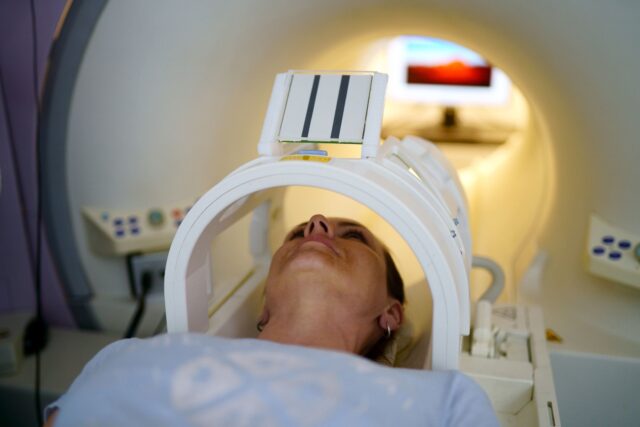
MRI Scan or Magnetic Resonance Imaging is a special type of scan that uses magnetic fields and radio waves to produce detailed images of the insides of a body part.
It can be used to examine any part of the body including but not limited to:
- Brain and Spinal Cord
- Bones and Joints
- Breasts
- Heart and blood Vessels
- Internal Organs, such as the liver, prostate gland or womb
It is an advanced non-invasive imaging technique done to detect and diagnose various abnormalities in your body. An MRI scan can be used as an extremely accurate method of disease detection throughout the body and is most often used after the other testing fails to provide sufficient information to confirm a patient’s diagnosis. The results of an MRI scan can be used to help diagnose conditions, plan treatments and assess how effective previous treatment has been.
How is an MRI performed?
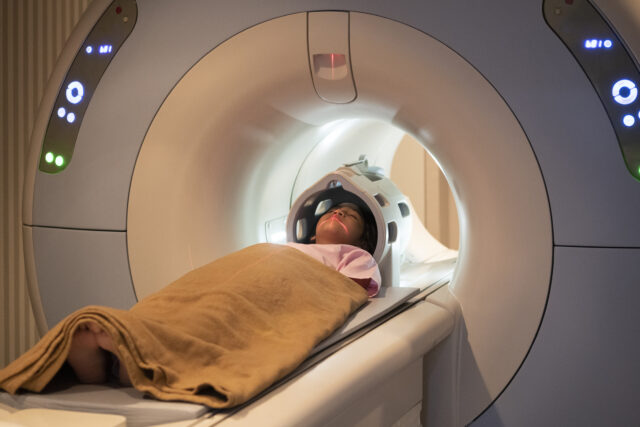
An MRI Scan is a painless procedure that lasts anywhere between 15 minutes to 90 minutes depending upon the size of the area being scanned and also the number of images being taken. An MRI Scanner is a short cylindrical equipment that is open at both ends and the patient is required to lie on a motorized bed that is moved inside the scanner. Since it is a painless procedure, there is no requirement of anesthesia but in case one experiences claustrophobia, they can ask for a mild sedative prior to the scan from their GP or Consultant to help them feel at ease.
What are the types of MRI?
Abdomen MRI
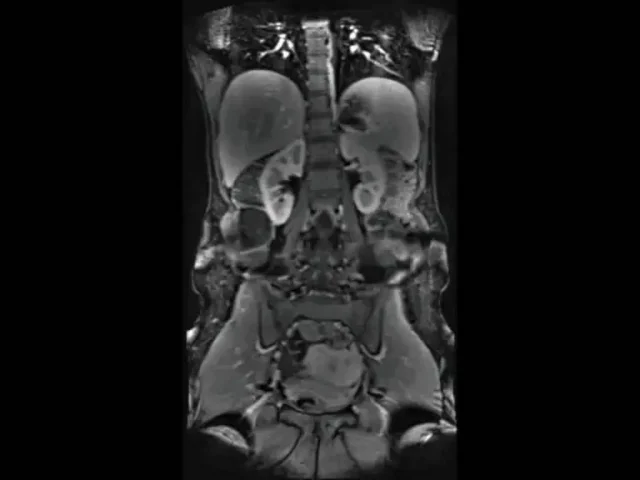
The most common reason for using an MRI of the abdomen is to further investigate an abnormality discovered during another test, such as an ultrasound or CT scan. As a result, the examination is frequently designed to examine specific organs or tissues, such as the liver, adrenal glands, or pancreas.
Bones and Joints MRI
The soft tissues, as well as practically all of the bones and joints, can be evaluated with MRI. MRI scans can be used to identify tendon, ligament, muscle, cartilage, and bone problems. It’s also useful for detecting infections and masses.
Brain MRI
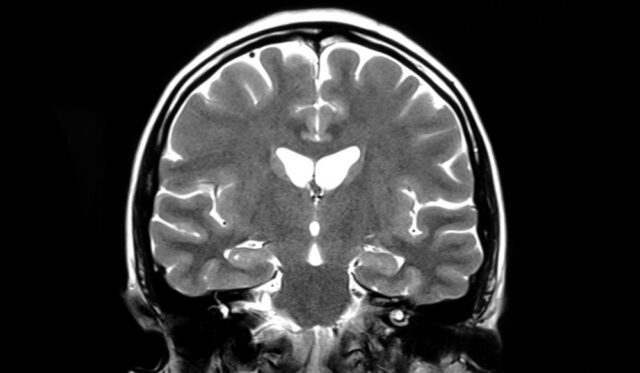
An MRI of the brain generates extremely detailed images of the brain’s anatomy. It’s frequently used to assess people with headaches, seizures, weakness, blurred vision, and other symptoms. It can also be used to investigate an abnormality discovered on a CT scan. A unique device called a head coil is placed around the patient’s head during a brain MRI. This coil, which resembles a helmet, allows the patient to see across enormous gaps. This technology aids in the correct production of extremely detailed brain images.
Breast MRI
A breast MRI is a relatively recent treatment that can be used to detect breast cancer and other abnormalities in the breast. Breast MRI with contrast injection is very effective at detecting breast cancer and can detect tumours in some women that other procedures cannot. Although MRI does not replace mammography, it may be done if your doctor believes it is required.
Cardiac MRI
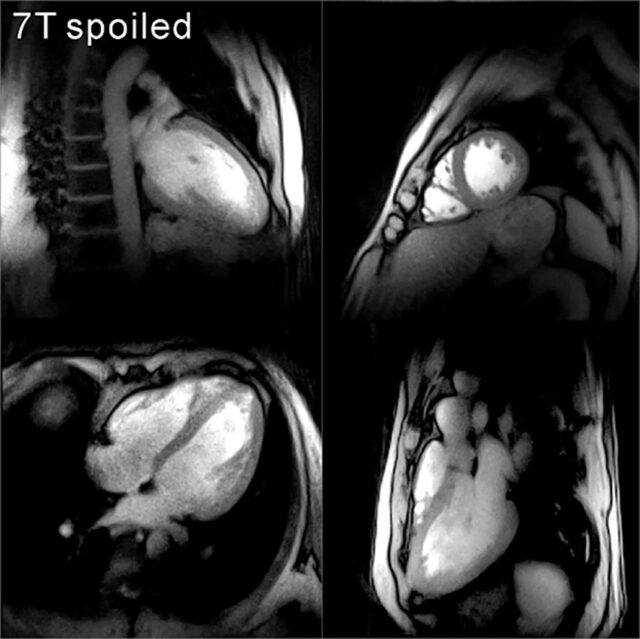
Cardiac imaging is employed to judge the anatomy and performance of the heart’s center, its valves and major blood vessels. It’s a useful tool for detection and evaluating the consequences of artery sickness by assessing blood flow to the center and also the extent of injury caused by a coronary failure or different progressive heart diseases. Non-inheritable heart defects and internal organ tumors are accurately visualised using MRI.
If you are from Chennai, India and need any of the above types of MRI scan done, LabsAdvisor.com has got you covered.
What are the prerequisites for an MRI Scan?
During an MRI Scan, the patient is exposed to strong magnetic fields because of which certain points must be taken into consideration prior to the procedure. One must inform the radiology staff regarding the following conditions if it is applicable to them:
- Pacemaker
- Pregnancy
- Claustrophobia
- History of kidney problems
- Skin tattoos
- Neurostimulators (TENS-unit)
- Implanted drug infusion device (i.e., insulin pump)
- Exposure of metal fragments to your eye
- Artificial heart valves
- Aneurysm clips
- Cochlear implants
- Metallic implants and prosthesis
- Vascular stent or stent graft
- History as a metal worker
- Shrapnel or bullet wounds
- Dorsal column stimulators
- Allergy to iodine, or gadolinium
- History of diabetes
- Other conditions that might be relevant
What are the risks of MRI?
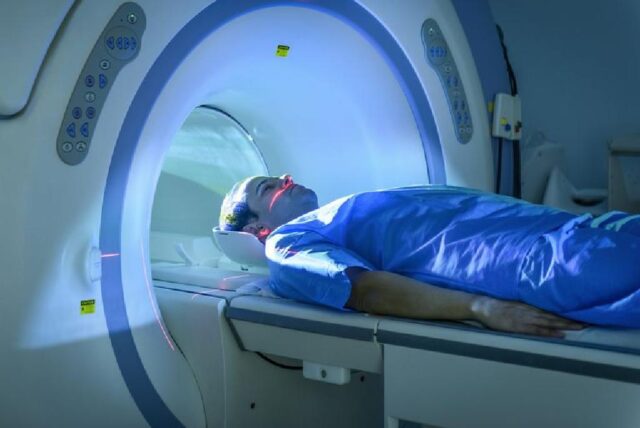
There aren’t any known biological risks to humans from being exposed to magnetic fields of the strength utilized in medical imaging these days. Therefore, the imaging test poses virtually no risk to the common patient once acceptable safety tips as mentioned above are followed. The sturdy force field utilized in imaging isn’t harmful in itself, however medical devices that contain metal might malfunction or be a hazard throughout the MRI procedure. The patient shall be screened to ensure his/her safety.
What are the risks associated with MRI during pregnancy?
Most studies advise that there aren’t any harmful effects from magnetic resonance imaging during pregnancy. That said, a cautious approach is that imaging ought to solely be performed throughout the primary trimester once there’s a transparent and pressing indication. Less pressing studies are postponed till later during the pregnancy or till when delivery. The choice of whether or not to scan a pregnant patient is formed on a case-by-case basis with consultation between the imaging radiotherapist and also the patient’s MD. The benefit of performing the scan must outweigh the risk, however small, to the fetus and mother.












